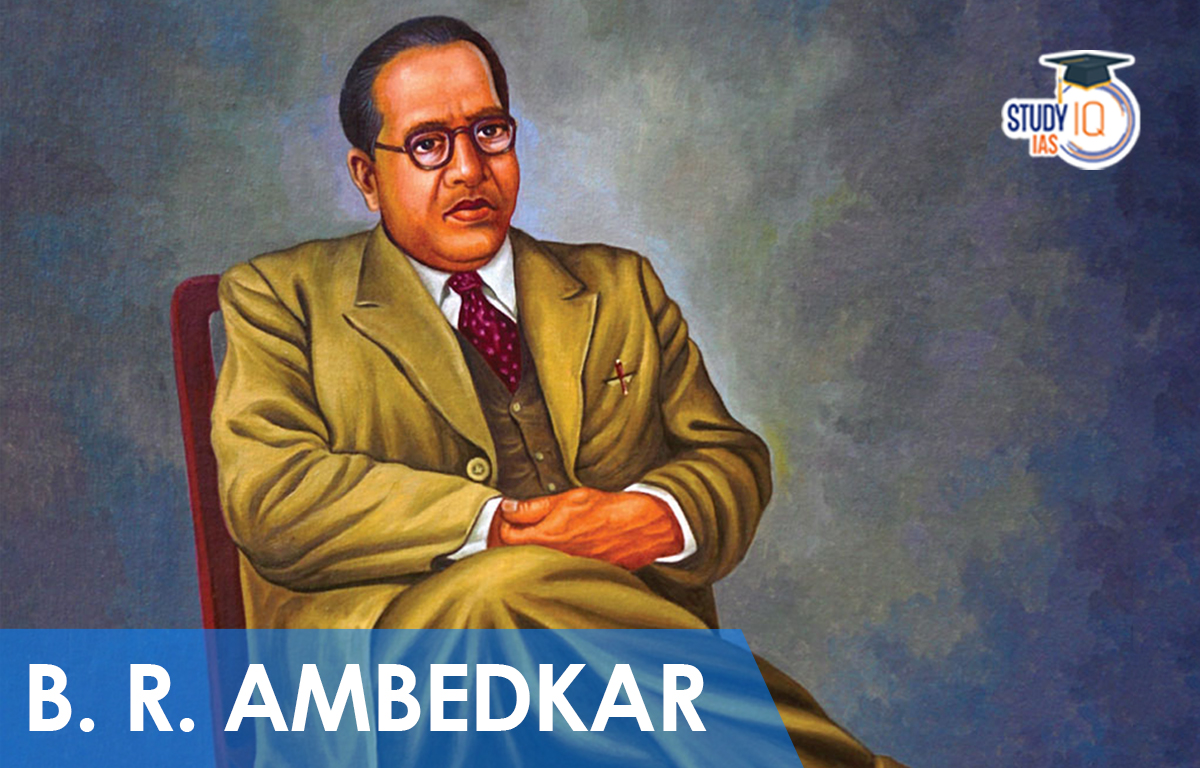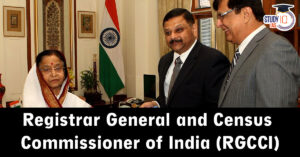Table of Contents
Ambedkar Jayanti 2025 will be observed on April 14 all over India and in many places worldwide. It is the 134th birth anniversary of Dr Bhimrao Ramji Ambedkar, popularly called Babasaheb Ambedkar, the architect of the Indian Constitution. Also known as Bhim Jayanti, it is not only his birth celebration but an homage to his marvelous work for social justice, equality, and building the nation.
BR Ambedkar Birth Anniversary 2025
Dr. B. R. Ambedkar, often respectfully called Babasaheb Ambedkar, was born on April 14, 1891, in Mhow, a military cantonment in present-day Madhya Pradesh. Coming from a Dalit (Scheduled Caste) background, Ambedkar faced intense caste discrimination but broke all barriers to become an eminent jurist, economist, educationist, and social reformer.
| Key Highlights | Details |
|---|---|
| Full Name | Dr. Bhimrao Ramji Ambedkar |
| Popular Names | Dr. BR Ambedkar, Dr. Babasaheb Ambedkar, B.R. Ambedkar |
| Contribution | Chairman of the Constitution Drafting Committee |
| Titles | Father of Indian Constitution, Dalit Icon, Samvidhan Nirmata (संविधान निर्माता) |
| Religious Conversion | Embraced Buddhism on October 14, 1956 |
| Death | December 6, 1956 (Mahaparinirvan Diwas) |
Why Is 14th April Celebrated As A National Holiday?
-
Recognized as Dr. Ambedkar Jayanti in the official gazette
-
Declared a public holiday under the Negotiable Instruments Act by the Government of India
-
Banks, Central and State Government Offices remain closed
Bhim Jayanti 2025: Celebrations Across India
Dr BR Ambedkar Jayanti 2025 will be celebrated in a grand manner across India:
-
In Maharashtra, lakhs gather at Chaitya Bhoomi, Mumbai
-
In Madhya Pradesh, special programs are held in Mhow, his birthplace
-
In Delhi, Parliament members pay tribute at the Ambedkar statue
-
In educational institutions, events emphasize Ambedkar’s role in drafting the Indian Constitution
Bhimrao Ramji Ambedkar Biography
Babasaheb Ambedkar, also known as Bhimrao Ramji Ambedkar, was a key figure in the creation of the Indian Constitution. He served as India’s first law minister and is regarded as the Father of the Indian Constitution. He served as the new Constitution’s drafting committee’s chairman. In March 1927, he led the Mahad Satyagraha against upper-caste Hindus who disagreed with the Municipal Board’s decision.
At all three Round Table Conferences, he took part. The Poona Pact, which Dr. Ambedkar and Mahatma Gandhi signed in 1932 (Communal Award), abandoned the notion of separate electorates for the oppressed classes. The Reserve Bank of India (RBI) was founded on his recommendations to the Hilton Young Commission.
BR Ambedkar’s Early Life
BR Ambedkar refused to let the constraints of his upbringing stand in the way of obtaining a top-notch education and raising the standard for academic success. Babasaheb was born into the Hindu Mahar caste, which was derided as “untouchable” by the upper elite of the time. He received his doctorate from the London School of Economics and a law degree from Lincoln’s Inn, cementing his position as an outstanding scholar for his work in the fields of law, economics, and political science. He wore various hats in his early career, including economist, lecturer, and lawyer.
Ambedkar was born on April 14, 1891, in the Madhya Pradesh town and military cantonment of Mhow (formally known as Dr. Ambedkar Nagar today). Ambedkar’s forefathers had long served in the British East India Company‘s armed forces, and his father was a British Indian Army soldier stationed at the Mhow cantonment. When he was younger, he experienced casteism at school because other children like him weren’t permitted to sit in the class.
BR Ambedkar Education
Ambedkar was a gifted young man who did well in school. He completed his matriculation test in 1907, and the following year, he enrolled in Elphinstone College, a University of Bombay affiliate, becoming, in his estimation, the first member of his Mahar caste to do so. He graduated from Bombay University in 1912 with a degree in economics and political science and was then ready to start working for the Baroda state administration.
Sayajirao Gaekwad III (Gaekwad of Baroda) launched a program in 1913, when Ambedkar was 22 years old, to give possibilities for postgraduate study at Columbia University in New York City. The Baroda State Scholarship was granted for three years. He earned his second M.A. in 1916, and in 1927, Columbia awarded him his Ph.D. in economics. The problem of untouchability still affects his life in India after returning, despite his high level of education. Due to people objecting to his lower caste, he was unsuccessful at a number of professions, including one as a professor.
BR Ambedkar’s Fight Against Untouchability
In the following phase, he became a recognized national leader with a modern India-wide vision that was based on the principles of social justice and equality. He channeled his prodigious intellectual abilities to write an anthem for an inclusive India as the liberation movement in that country gained momentum and worked diligently to advance the political rights and social freedom of Dalits and other marginalized groups.
He founded the “Bahishkrit Hitkarini Sabha (Outcastes Welfare Association)” in 1923 to bring culture and education to the underprivileged. Ambedkar made the decision to start aggressive campaigns against untouchability in 1927. To open up public drinking water resources, he started with rallies and marches. Additionally, he started to fight for the freedom to access Hindu temples.
Ambedkar ceremonially burned copies of the ancient Hindu literature Manusmriti (Laws of Manu) in a conference in late 1927 after openly denouncing it for defending caste prejudice and “untouchability” on ideological grounds.
BR Ambedkar and Poona Pact 1932
The creation of a distinct electorate for the “Depressed Classes” was declared by the British colonial authority in the Communal Award in 1932. Mahatma Gandhi was adamantly opposed to the untouchables having their own electorate because he believed it would cause the Hindu community to become more divided.
Gandhi demonstrated by fasting when incarcerated in Poona’s Yerwada Central Jail. Politicians from Congress set up joint talks with Ambedkar and his followers at Yerwada after the fast. Ambedkar (on behalf of the oppressed classes among Hindus) and Madan Mohan Malaviya (on behalf of the other Hindus) signed the agreement known as the Poona Pact on September 25, 1932.
The agreement provided reserved seats in the Provisional legislatures for the lower classes within the general electorate. The phrase “Depressed Classes” was used in the book to refer to Hindus who were considered Untouchables and later known as Scheduled Castes and Scheduled Tribes under the 1935 India Act and the 1950 Indian Constitution.
BR Ambedkar’s Political Journey
Ambedkar established the Independent Labour Party in 1936, and it ran in the 1937 Bombay election for the 13 reserved and 4 general seats, winning 11 and 3 seats, respectively. On May 15, 1936, Ambedkar released his book Annihilation of Caste. It contained “a rebuke of Gandhi” on the matter and harshly criticised Hindu orthodox religious leaders and the caste structure in general.
Ambedkar introduced a bill in the Bombay Legislative Assembly in 1937 that sought to end the khoti system by establishing a direct line of communication between the government and farmers. Ambedkar held the position of minister for labour and served on the Viceroy’s Executive Council and Defence Advisory Committee. Ambedkar wrote a 400-page essay titled “Thoughts on Pakistan” in response to the Muslim League’s Lahore resolution (1940), which demanded Pakistan and examined the idea of “Pakistan” from all angles.
Ambedkar argued that the Hindus should allow the Muslims to exercise authority over Pakistan. Ambedkar also disapproved of South Asian Muslims’ use of Islam. He denounced child marriage and the exploitation of women in Muslim society while defending the Partition of India.
BR Ambedkar and India’s Constitution
Dr. Ambedkar was given a huge task during India’s tryst with destiny, as the first Indian Prime Minister Jawaharlal Nehru talked eloquently about the crucial moment of India’s independence: he was named Chairman of the Constitution Drafting Committee on August 29, 1947.
He created a pluralistic and inclusive Constitution that continues to guide and inspires India today, ensuring that all citizens enjoy equal opportunity and the right to express their faith and beliefs in a secular democracy. The revolutionary spirit of Dr. Ambdekar, which is represented in the Indian Constitution, has been evoked by renowned historian Granville Austin. According to Austin the majority of Indian constitutional provisions, “either directly advances the goal of social revolution or attempt to foster this revolution by establishing conditions necessary for its accomplishment”.
Untouchability was eradicated and all types of discrimination were made illegal by the Constitution, which was drafted under Dr. Ambedkar’s direction. An ardent supporter of the rights of women, minorities, and those from disadvantaged social backgrounds, he persuaded the Constituent Assembly to support the introduction of a system of job reservations for members of Scheduled Castes, Scheduled Tribes, and Other Backward Classes.
Later, the Indian government adopted affirmative action policies that reflected this. Dr. Ambedkar, a learned economist and institution-builder, was instrumental in the creation of the Finance Commission of India and the author of numerous academic economics treatises. His theories also served as the basis for the Reserve Bank of India’s establishment as India’s central bank. While Dr. Ambedkar’s accomplishments were numerous and varied, his inner life was more abundant and characterized by spiritual vigour. He changed to Buddhism in 1956.
BR Ambedkar Death Anniversary
The death anniversary of B.R. Ambedkar, a key architect of the Indian Constitution and a champion of social justice, is commemorated annually. This solemn occasion, observed on December 6th, marks the passing of Dr. B.R. Ambedkar in 1956. Remembered for his tireless efforts in advocating for the rights of marginalized communities, Ambedkar’s legacy extends beyond legal frameworks to social reform. On this day, people reflect on his contributions to the upliftment of Dalits and the underprivileged, emphasizing the ongoing pursuit of equality and justice in society. It serves as a reminder to honor Ambedkar’s vision for an inclusive and just India.
Mahaparinirvana Diwas
Mahaparinirvan Diwas is celebrated on December 6 every year to commemorate the death anniversary of Dr. B.R. Ambedkar. Ambedkar was born in Mhow, India on April 14, 1891 and died in New Delhi on December 6, 1956.
Parinirvana, a key concept in Buddhism, symbolizes the attainment of nirvana during and after one’s lifetime. In Sanskrit, the release of the soul from the body after death is termed Parinirvana. Similarly, “Parinibbana” in Pali signifies the fulfillment of nirvana. B.R. Ambedkar, an advocate for the rights of the underprivileged, rose to prominence in Indian politics from a Dalit background. Since his 1956 passing, appreciation for his ideas has continued to grow, highlighting his enduring impact on social justice.
B.R Ambedkar Legacy
Through the awarding of the Bharat Ratna in 1990, Babasaheb’s numerous contributions to the creation of a modern, inclusive India were honoured posthumously. The contours of Indian politics were changed by Dr. Ambedkar’s ideas about social inequity. Scholarly biographies, countless statues, and memorials all around the country demonstrate his soaring popularity.
Ambedkar is now regarded as a national hero and is listed alongside Gandhi, Nehru, and Tagore in the national pantheon as one of the architects of modern India. His birthday, April 14, is observed as a public holiday and is now known as “Ambedkar Jayanti” or “Bhim Jayanti.” Babasaheb continues to be an inspiration for millions of Indians and advocates of equality and social justice throughout the world as India commemorates the anniversary of the birth of this national hero.
The “Sustainable Development Goals” to be formally endorsed by the United Nations General Assembly to eradicate poverty, hunger, and socioeconomic inequality by 2030 bear a fitting resemblance to Babasaheb’s shining vision, even though it is really a coincidence.
Dr. B.R Ambedkar’s Relevance in 2025
Inequality based on caste still exists in India. While Dalits have developed a political identity as a result of reservation and the creation of their political parties, they lag in both the social (health and education) and economic spheres. The polarization of communities and the communalization of politics have increased. To prevent irreparable harm to the Indian Constitution, Ambedkar’s notion of constitutional morality must prevail above religious morality.
B.R Ambedkar UPSC
R.C. Guha, a historian, claims that Dr. B.R. Ambedkar is an exceptional instance of success even in the most challenging circumstances. Casteism, communalism, separatism, gender inequity, etc. are just a few of the socioeconomic issues that India is currently dealing with. For us to overcome these difficulties, we must discover the spirit of Dr. Ambedkar. Students can read all the details related to UPSC by visiting the official website of StudyIQ UPSC Online Coaching.


 Mechanisms to Combat Judicial Corruption...
Mechanisms to Combat Judicial Corruption...
 Registrar General and Census Commissione...
Registrar General and Census Commissione...
 Governor's Assent to State Laws and Bill...
Governor's Assent to State Laws and Bill...





















